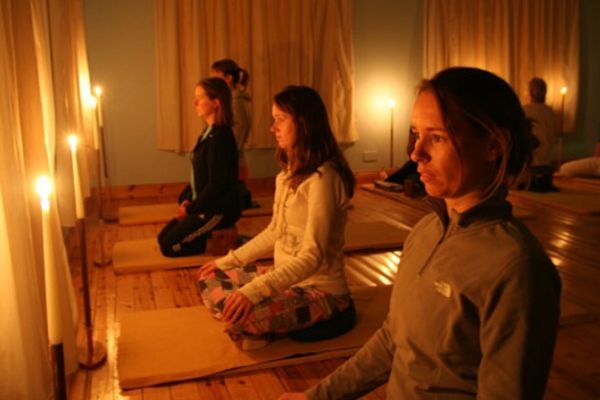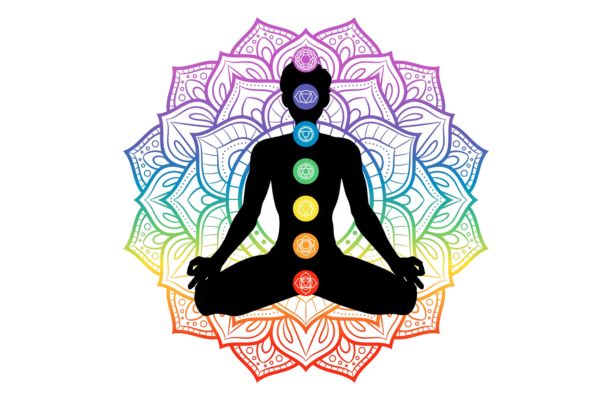In an increasingly fast-paced world, the importance of mental and physical well-being is paramount. Many individuals in Thane are discovering therapeutic yoga as a path to alleviate stress, manage chronic conditions, and enhance their overall quality of life. This comprehensive guide will delve into the essence of therapeutic yoga, the benefits it offers, the types of classes available.
What is Therapeutic Yoga?
Therapeutic yoga is a specialized form of yoga that integrates traditional practices with a focus on healing and wellness. Unlike standard yoga classes, which primarily emphasize physical postures (asanas) and sequences (vinyasa), therapeutic yoga is tailored to address specific physical or psychological issues. It employs personalized sequences, breathing techniques (pranayama), and mindfulness practices that cater to the individual’s needs.
The therapeutic approach often includes the use of props, gentle modifications, and restorative poses to promote relaxation and healing. This holistic approach makes therapeutic yoga a valuable resource for individuals seeking to improve their mental and physical health.

Benefits of Therapeutic Yoga
1. Stress Relief
One of the primary benefits of therapeutic yoga is its ability to reduce stress. The gentle stretching and mindful breathing help activate the parasympathetic nervous system, which counteracts the body’s stress response. By lowering cortisol levels, therapeutic yoga promotes a state of calm and relaxation, making it an excellent choice for those coping with the pressures of daily life.
2. Pain Management
For many individuals suffering from chronic pain conditions—such as arthritis, lower back pain, or fibromyalgia—therapeutic yoga can provide significant relief. The practice involves specific asanas designed to alleviate tension and improve flexibility, thereby reducing pain levels. Research has shown that yoga can enhance the body’s natural pain-relief mechanisms and provide a safe alternative to pharmaceutical treatments.
3. Improved Flexibility and Strength
Regular participation in therapeutic yoga classes can lead to increased flexibility and strength. The gentle nature of the practice encourages participants to listen to their bodies, making it accessible even for those with limited mobility or strength. Over time, consistent practice can lead to improved muscle tone, enhanced posture, and a greater range of motion in the joints.
4. Enhanced Mental Clarity
Therapeutic yoga promotes mindfulness, which can improve focus and mental clarity. By encouraging participants to stay present and engaged with their breath and body, therapeutic yoga can help alleviate symptoms of anxiety and depression. The meditative aspect of the practice fosters a sense of peace, making it easier for individuals to manage their thoughts and emotions.
5. Support for Chronic Conditions
Individuals with chronic conditions such as asthma, diabetes, or hypertension can greatly benefit from therapeutic yoga. Specific poses and breathing techniques can enhance lung capacity, regulate blood sugar levels, and improve circulation. This supportive approach not only addresses physical symptoms but also promotes a holistic sense of well-being.
6. Better Sleep Quality
Many individuals report improved sleep quality after incorporating therapeutic yoga into their routines. The relaxation techniques taught in class can help quiet the mind and prepare the body for restful sleep. By reducing insomnia and enhancing sleep cycles, therapeutic yoga contributes to overall health and vitality.

Who Can Benefit from Therapeutic Yoga?
Therapeutic yoga is suitable for individuals of all ages and fitness levels. Whether you are a seasoned yogi or a complete beginner, therapeutic yoga can accommodate your needs. It is especially beneficial for:
- Individuals with Chronic Pain: Those suffering from conditions such as arthritis or migraines can find relief through targeted practices.
- Older Adults: Therapeutic yoga is gentle and can improve balance, flexibility, and overall mobility in older adults.
- Individuals with Mental Health Concerns: Those dealing with anxiety, depression, or PTSD can benefit from the mindfulness and relaxation techniques in therapeutic yoga.
- Pregnant Women: Specialized classes can help manage discomfort and prepare the body for childbirth.
- Post-Injury Recovery: Therapeutic yoga can facilitate recovery by improving strength and flexibility post-injury.
Types of Therapeutic Yoga Classes Available
A variety of therapeutic yoga classes are available to meet diverse needs. Here are some common types you may encounter:
1. Restorative Yoga
Restorative yoga focuses on relaxation and rejuvenation. It involves the use of props to support the body in gentle poses, allowing participants to hold positions for longer periods. This practice encourages deep relaxation and can be particularly beneficial for stress relief and recovery from illness.
2. Hatha Yoga
Hatha yoga is a traditional form of yoga that emphasizes physical postures, breath control, and meditation. In a therapeutic context, Hatha yoga can be tailored to address specific health concerns, providing a balanced approach to physical and mental wellness.
3. Yin Yoga
Yin yoga targets the connective tissues and fascia in the body. It involves long-held, passive stretches that promote flexibility and joint health. Yin yoga is excellent for releasing tension and can be particularly beneficial for those dealing with chronic pain or stiffness.
4. Yoga for Anxiety and Depression
Many studios offer specialized classes focusing on mental health. These classes integrate breathing techniques, meditation, and specific asanas designed to reduce symptoms of anxiety and depression, making them ideal for individuals seeking emotional balance.
5. Prenatal Yoga
Prenatal yoga classes are specifically designed for expectant mothers. These classes focus on gentle movements, breathing techniques, and relaxation to help alleviate discomfort during pregnancy and prepare for labor and delivery.
6. Therapeutic Yoga for Seniors
Classes tailored for older adults focus on improving balance, flexibility, and strength while ensuring safety. These classes often incorporate chair yoga, allowing individuals with limited mobility to participate comfortably.

How to Choose the Right Therapeutic Yoga Class in Thane
Choosing the right therapeutic yoga class can significantly enhance your experience and results. Here are some tips to help you make an informed decision:
1. Assess Your Needs
Before selecting a class, consider your specific needs and goals. Are you seeking relief from chronic pain, stress reduction, or improved mental clarity? Understanding your objectives will help you find a class that aligns with your goals.
2. Research Local Studios
Thane has a growing number of yoga studios offering therapeutic classes. Research local options and read reviews from current and former students to gauge the quality of instruction and the atmosphere of the studio.
3. Check the Instructor’s Qualifications
Ensure that the instructor is certified in therapeutic yoga and has experience working with individuals with similar needs. A knowledgeable instructor can provide tailored guidance and ensure your safety during practice.
4. Attend a Trial Class
Many studios offer trial classes or introductory packages. Take advantage of these opportunities to experience the class format, instructor’s style, and overall environment before committing to a longer-term program.
5. Inquire About Class Size
Smaller class sizes often allow for more personalized attention and tailored guidance. If you have specific needs or concerns, opting for a class with fewer participants can enhance your experience.
6. Consider the Schedule and Location
Choose a class that fits your schedule and is conveniently located. Consistency is key in therapeutic yoga, so finding a class that works for your lifestyle is essential for maintaining your practice.

The Role of Mindfulness in Therapeutic Yoga
Mindfulness plays a crucial role in therapeutic yoga. It involves being fully present in the moment and aware of your thoughts, feelings, and physical sensations. This practice fosters a deep connection between the mind and body, enhancing the benefits of yoga.
Benefits of Mindfulness in Therapeutic Yoga:
- Improved Emotional Regulation: Mindfulness helps individuals recognize and manage their emotions, reducing symptoms of anxiety and depression.
- Increased Self-Awareness: By tuning into the body and mind, participants can develop a greater understanding of their needs and limits, leading to more effective self-care.
- Enhanced Focus: Mindfulness improves concentration, making it easier to engage fully in each yoga session and carry that focus into daily life.
Conclusion
Therapeutic yoga classes offer a transformative path to wellness, addressing both physical and emotional health. With a variety of class types available, individuals can find the perfect fit for their unique needs and goals. By incorporating therapeutic yoga into your routine, you can experience significant benefits, from stress relief to improved mental clarity and physical health.
If you’re looking to embark on your therapeutic yoga journey, explore local studios in Thane that offer specialized classes. Remember to assess your needs, research instructors, and attend trial classes to find the perfect match. With the right guidance and practice, therapeutic yoga can lead you to a healthier, more balanced life.
